Content
Media
Latest Articles and Appearances
![]()
Did Matthew Perry’s Assistant Have a Choice? Hollywood Veterans Aren’t So Sure.
 September 4 — Carder Stout, a celebrity therapist who also offers addiction treatment, points out that a star’s assistant is brought into an intimate, secretive structure the moment they get the job. “It’s, ‘If I ever hear of you saying anything to anyone you’re done. Fired. Cut off,’” he says. “And there’s a seductive quality to being with someone of an elevated status. I can only imagine that Matthew Perry’s assistant didn’t know that he would be asked to do some of the things that he ultimately did.” Continue on VanityFair.com ›
September 4 — Carder Stout, a celebrity therapist who also offers addiction treatment, points out that a star’s assistant is brought into an intimate, secretive structure the moment they get the job. “It’s, ‘If I ever hear of you saying anything to anyone you’re done. Fired. Cut off,’” he says. “And there’s a seductive quality to being with someone of an elevated status. I can only imagine that Matthew Perry’s assistant didn’t know that he would be asked to do some of the things that he ultimately did.” Continue on VanityFair.com ›

6 Tricks to Try to Calm Your Fear of Flying
 May 10 — After years of flying without any issues, Los Angeles psychologist Carder Stout developed aerophobia in his 30s. Now, he has an action plan that he shares with his clients and uses himself. Step one: Ensure you feel some sense of control over your environment. That means bringing your own pillow, blanket, and slippers. “I pull down the window shades in my aisle, or ask the other passengers to do so,” he says. (No one has declined the request yet.) During take off, he puts on Pink Floyd, closes his eyes, and visualizes a peaceful, tranquil, and safe place that he’s visited before. That image, he says, helps calm his jittery nerves. Continue on Time.com ›
May 10 — After years of flying without any issues, Los Angeles psychologist Carder Stout developed aerophobia in his 30s. Now, he has an action plan that he shares with his clients and uses himself. Step one: Ensure you feel some sense of control over your environment. That means bringing your own pillow, blanket, and slippers. “I pull down the window shades in my aisle, or ask the other passengers to do so,” he says. (No one has declined the request yet.) During take off, he puts on Pink Floyd, closes his eyes, and visualizes a peaceful, tranquil, and safe place that he’s visited before. That image, he says, helps calm his jittery nerves. Continue on Time.com ›
![]()
I Was Sober for 10 Years—But a Psychedelic Medicine Changed My Life
 August 10 — When an old friend invited me to an iboga ceremony, I hesitated. I feared taking the psychoactive substance might threaten the sobriety I had worked so hard to protect.
August 10 — When an old friend invited me to an iboga ceremony, I hesitated. I feared taking the psychoactive substance might threaten the sobriety I had worked so hard to protect.
I was 10 years clean from all substances; what if my piqued curiosity was simply drug-seeking behavior? Continue on Newsweek.com ›
Dr. Carder Stout Is The Only One Whose Drug Dealer Got Him Sober
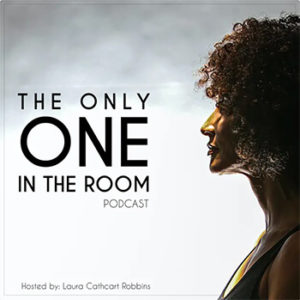 January 24 — Imagine that your drug addiction has taken everything from you, your friends, your family, your apartment, and all you’ve got left is your trusty Ford Taurus.
January 24 — Imagine that your drug addiction has taken everything from you, your friends, your family, your apartment, and all you’ve got left is your trusty Ford Taurus.
Depth psychologist and author, Dr. Carder Stout, was circling the drain when he received an offer that would not only give him cash in his pocket, but would also give him free drugs.
So what would you do if the job was driving for a well-known drug dealer? Would you decide it was too dangerous and tell him, “no thank you?” Or would you take the job and change your life in the most unexpected way? Continue on Apple.com ›

Are You a Phone Addict?
 January 12 — If you find yourself with your phone in your hand by default, you might be an addict.
January 12 — If you find yourself with your phone in your hand by default, you might be an addict.
No, really. Jungian psychologist and addiction expert Carder Stout, PhD, sees clients struggling with dependence on alcohol and drugs, sure. But also: dependence on connection, vanity, resentment, love, overthinking. In his new book, We Are All Addicts , Stout posits that any fixation that disconnects you from your innate humanity can be considered addiction. If your phone has become a problem, he encourages small steps—followed by bigger ones—toward digital sobriety. Continue on Goop.com ›

 Dry January movement picks up steam after holidays
Dry January movement picks up steam after holidays
January 5 — Dr. Carder Stout, psychologist and author of “We Are All Addicts” talks about the boon in popularity for the Dry January movement and how it is helping participants enjoy their every day lives.
Depth psychologist Carder Stout discusses ‘Dry January’, his book ‘We Are All Addicts’
 January 2 — As some across the country are participating in “Dry January,” FOX 11’s Special Report was joined by psychotherapist Carder Stout.
January 2 — As some across the country are participating in “Dry January,” FOX 11’s Special Report was joined by psychotherapist Carder Stout.
This comes as many have pledged to start 2023 on a sober note by not drinking in January. Stout spoke with the Special Report as he celebrates more than 15 years of sobriety.
In the interview, Stout shared important tips for those looking to complete the challenge and not fall victim to temptations.

 The Power of Soulful Moments
The Power of Soulful Moments
December 16 — In his new book, We Are All Addicts: The Soul’s Guide to Kicking Your Compulsions (Viva Editions), therapist Carder Stout, Ph.D., gives praise to spiritual practice for removing self-destructive thoughts and tendencies.
We have soul moments every day, even if we are not aware of them. Each time we look at something beautiful and are moved by its exquisite nature, we are connecting with the soul. During these instances of appreciation, give a brief nod to the soul—perhaps a simple thank-you. When you spend time with your children, your friends or your family and there is laughter, gratitude and authenticity, you are having a soul moment.

 How to kick your phone addiction
How to kick your phone addiction
December 7 — Are you addicted to your phone? Psychologist Dr. Carder Stout joins Good Day DC to share his tips for combating your obsession with your device.

 Creating a Healthy Relationship with Your Cell Phone
Creating a Healthy Relationship with Your Cell Phone
December 5 — Are you addicted to your cell phone? Dr. Carder Stout, author of “We Are All Addicts: The Soul’s Guide to Kicking Our Compulsions” joined us with his advice on breaking the habit.
 Don’t let your addiction to work ruin the holidays
Don’t let your addiction to work ruin the holidays
December 5 — Psychologist and author Dr. Carder Stout expounds on lessons from his new book “We Are All Addicts” and dishes out tips for workaholics to power down during the holidays.
![]()
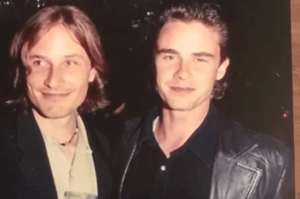 ‘I Was Homeless, Now I’m a Celebrity Therapist’
‘I Was Homeless, Now I’m a Celebrity Therapist’
November 23 — By all standards, I grew up in privilege. I was educated in private schools in Washington, DC and New Hampshire. My father was a prominent businessman who founded National Journal magazine, and my mother was a socialite. But the privilege of my parents’ attention was rarely granted to me…
![]()
 Tips for battling cell phone addiction
Tips for battling cell phone addiction
November 21 — Are we really addicted to our cell phones? KDKA’s John Shumway asks psychologist and addiction expert Dr. Carder Stout.

 Dr. Carder Stout: “What’s Your Addiction?”
Dr. Carder Stout: “What’s Your Addiction?”
November 16 — Psychotherapist Dr. Carder Stout walked the path of addiction before turning his life around- he now helps others to do the same. He is the author of the new book “We Are All Addicts: The Soul’s Guide to Kicking Your Compulsions.”
![]()
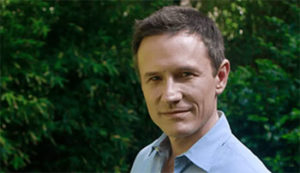 “We Are All Addicts”: Psychologist Carder Stout Opens Our View on Addiction and What to Do to Move through It
“We Are All Addicts”: Psychologist Carder Stout Opens Our View on Addiction and What to Do to Move through It
Throughout the world, there is discord around the theories of addiction. Many believe it to be a disease or a chip in one’s DNA that leaves them predisposed to its throes. My curiosity led me to the work of Carder Stout, Ph.D, MFT. A Los Angeles-based psychologist who has worked with hundreds of addicts, Stout believes that addiction is a psychological energy; a fluid power that—much like other emotions—has the capacity to visit us and also to leave us. “I feel… Continue on MariaShriver.com ›
A Therapist’s Tips for Maintaining New Sobriety
November 5 — We went to therapist Carder Stout, PhD, with one of the most common questions we’ve gotten about addiction and sobriety in the past year: How do you overcome new substance issues spurred by the stress and isolation of the pandemic? Continue on Goop ›
 Pain, Peace, and Writing One’s Life Story
Pain, Peace, and Writing One’s Life Story
January 15 – On this episode of Book It with CA, Carol Anne speaks with three authors who have pulled back the curtains on their own lives in deeply personal memoirs.
Diane Cardwell, author of Rockaway, Susan Burton, author of Empty, and Carder Stout, author of Lost in Ghost Town, talk about their private struggles, relationships with family and the challenges of turning one’s own life into a book. Continue on CUNY TV ›
 Lost And Found With Dr. Carder Stout
Lost And Found With Dr. Carder Stout
October 9 – This is a story of addiction, decline, recovery and family. It is also the very embodiment of empathy.
In Lost in Ghost Town, Dr. Carder Stout recounts a middle-class upbringing and a childhood of privilege, at least from outside appearances. Underneath was a family history of alcoholism and crime that shape Stout’s destiny – or at least until he could take control of his own life journey. Continue on What We See ›
 Dr Carder Stout talks about his memoir ‘Lost in Ghost Town’
Dr Carder Stout talks about his memoir ‘Lost in Ghost Town’
Author Sophie Sabbage talks about her audiobook for managing mental health in the Covid-19 pandemic and the LA-based psychologist Dr Carder Stout talks about his memoir ‘Lost in Ghost Town’.
 Blue sky thinking with the A-list’s favourite shrink
Blue sky thinking with the A-list’s favourite shrink
 He’s friends with everyone from Gwyneth to Brad and battled his own demons before he became a therapist. Carder Stout tells Katie Strick his extraordinary story. Continue on ES Insider ›
He’s friends with everyone from Gwyneth to Brad and battled his own demons before he became a therapist. Carder Stout tells Katie Strick his extraordinary story. Continue on ES Insider ›
 Life After Addiction and Drugs From a Personal Experience
Life After Addiction and Drugs From a Personal Experience
June 29 – Dr. Carder Stout wrote “Lost in Ghost Town” about his time spent in the Venice area of L.A. He was a Hollywood Producer and came from a privileged family. But it all came apart when he say he fell into addiction. Dr. Stout says a kind family pulled him from a dark place and helped him see that there was more to life. He details his life’s journey of hope and redemption in the book. “Lost in Ghost Town” is available now.
 Interview with Dr. Carder Stout of ‘Lost in Ghost Town’
Interview with Dr. Carder Stout of ‘Lost in Ghost Town’
May 20 – Before he became a noted Hollywood psychologist, Carder Stout, PhD, lived a privileged life that gradually descended from elite Manhattan private schools into crack addiction and running drugs for an LA gang. Here, he tells Purist about the journey, and offers a peek at his searing memoir of addiction, redemption and hope in unlikely places. Continue on The Purist Online ›
 Kitty Kelley Book Club: ‘Lost in Ghost Town’
Kitty Kelley Book Club: ‘Lost in Ghost Town’
May 5 – Addiction memoirs are a particular genre. They present unequal parts of noir autobiography, gothic fiction, sci-fi and dystopian horror, along with bits of black humor. They are books about recovery, which can only be written by those who have jumped off the train headed for oblivion. Their stories of survival plunge readers into realms of degradation that kill all but the lucky and the brave.
A few such memoirs, like David Carr’s “The Night of the Gun” and Mary Karr’s “Lit,” ascend as literary revelations. But, whatever the prose, each addiction memoir validates hope and proves that demons can be conquered. The victory usually comes at the cost of steel bracelets, nights behind bars, sleeping in alleys, suicide attempts, several stints in rehab and then a solid 12-step program, all of which Carder Stout illustrates in “Lost in Ghost Town: A Memoir of Addiction, Redemption, and Hope in Unlikely Places.” Continue on The Georgetowner ›
 Affirmations for Releasing Fear and Overcoming Anxieties
Affirmations for Releasing Fear and Overcoming Anxieties
 April 24 – Fear is protective. It’s our mind’s way of understanding a threat, processing exactly how threatening it is, and coordinating some kind of response. But we tend to have it in excess and hold onto it for too long, as if a moment or two of letting our guard down might give the boogeyman the opportunity it needs to get us. That’s what makes fear and anxiety so draining and often debilitating: We can’t—or maybe won’t—let it go.
April 24 – Fear is protective. It’s our mind’s way of understanding a threat, processing exactly how threatening it is, and coordinating some kind of response. But we tend to have it in excess and hold onto it for too long, as if a moment or two of letting our guard down might give the boogeyman the opportunity it needs to get us. That’s what makes fear and anxiety so draining and often debilitating: We can’t—or maybe won’t—let it go.
Therapist Carder Stout, PhD, knows that we’re currently in a near-constant state of high alert: social distancing, disinfecting, shooting distrustful glances at anyone who steps inside our six-foot radius. While it’s important to carefully follow health protocols to slow the spread of the virus, he says, that doesn’t mean we have to live like the boogeyman is at our door. We can release fear and reside in the present moment, where, despite the virus, some things are still good. Continue on Goop.com ›
 Lost in Ghost Town with Carder Stout
Lost in Ghost Town with Carder Stout
On today’s episode of The Addicted Mind Podcast, Duane speaks with author Carder Stout about his book, Lost in Ghost Town, the story of his addiction and recovery. Duane also addresses the difficulty of the ongoing COVID-19 situation by starting a campaign of stories trying to spread hope in a time of darkness.
Spectrum 1 Morning News
Psychologist and author of “Lost in Ghost Town”, Dr. Carder Stout, discusses how social distancing impacts those with addiction.
 Baltimore Sun Book Review
Baltimore Sun Book Review
Addition trumps privilege in Carder Stout’s vivid memoir “Lost in Ghost Town: A Memoir of Addition, Redemption, and Hope in Unlikely Places.” Written with excruciating truth and visceral fear, desperation and despair, Stout takes us into the incapacitating strangle-hold of additional and the battle to overcome it. Continue reading ›

“Lost in Ghost Town:” The Scared-Straight Tale of a Rich Boy Hitting Crack-Rock Bottom
Addiction trumps privilege in Carder Stout’s vivid memoir Lost in Ghost Town: A Memoir of Addiction, Redemption, and Hope in Unlikely Places (HCI). Written with excruciating truth and visceral fear, desperation and despair, Stout takes us into the incapacitating stranglehold of addiction and the battle to overcome it.
Son of an heiress, he’d lived in a four-story mansion in Georgetown, then a penthouse in Manhattan, “had climbed Himalayan peaks in Nepal, swum with sharks on the Great Barrier Reef, and watched The Stones play a free concert to the newly liberated citizens of Prague.” But that life was a fairytale and a distant memory when he later lived on the murderous streets of Ghost Town – the dangerous Oakwood neighborhood of Venice, CA — and became a driver for Flyn, known as the “underground mayor of drugtown,” a venerated former member of the Shoreline Crip gang. Continue on BookTrib.com ›
Dr. Carder Stout talks new book “Lost in Ghost Town”
Psychologists to the Hollywood elite Dr. Carder Stout is here to discuss his page-turning memoir about his fall from grace into the guilty underbelly of crack addiction, running drugs for the Shoreline Crips, surviving homelessness, escaping a murder plot, and finding redemption in the most unlikely of places. To get more information you can follow him on Instagram @drcarderstout and Twitter @carderstout and on Facebook at Carder.Stout.
 Lost in Ghost Town – Review on KirkusReviews.com
Lost in Ghost Town – Review on KirkusReviews.com
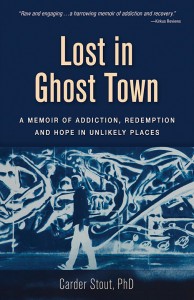 A Hollywood psychologist’s account of his drug addiction and poverty and of his clean-and-sober return.
A Hollywood psychologist’s account of his drug addiction and poverty and of his clean-and-sober return.
From the outside, Stout’s early life seemed perfect. Yet behind the privilege was unhappiness: Both of his parents drank excessively, and his father was more absent than present. As a preteen, the author experimented with alcohol and marijuana; before he was a teenager, he became bulimic. After his parents sent him to a prestigious boarding school in New Hampshire, Stout attached himself to a popular older student who introduced him to cocaine. Living in New York after college, reckless and without direction, the author exhausted his trust fund on a penthouse and spent most of his nights drinking and snorting cocaine with A-list actors and celebrities. “We were oversexed, libido-driven twenty-somethings without regular jobs to go to in the morning,” he writes. “We drank and laughed and carried on like we were invincible.” A few years later, Stout moved to Los Angeles, where he began his slide into crack addiction. By 2003, he was living in a part of Venice called “Ghost Town,” named for the addict “ghosts” who haunted the streets. Without a job and almost homeless, he became a driver for a Shoreline Crips drug lord named Flyn who offered Stout the brotherly comfort and support he lacked. The author’s situation became even more dire after he became a drug runner for another Crip named Trech. Seeking a way out of the drug life but not sure how to proceed, Stout helped a woman he loved—who also happened to be Trech’s favorite prostitute—escape back home to Detroit. After Trech hunted him down and almost killed him, Stout finally left Los Angeles and returned to the East Coast, where he began the long road to recovery. Raw and engaging, this is both a cautionary tale about the hidden costs of privilege and a testament to one man’s eventual willingness to change to save himself. A harrowing memoir of addiction and recovery. Continue on KirkusReview.com ›
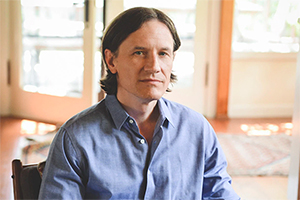 RS Recommends: ‘Lost in Ghost Town’ Is a Drug Memoir With a Redemptive Finish
RS Recommends: ‘Lost in Ghost Town’ Is a Drug Memoir With a Redemptive Finish
There is no easy way to write about drug addiction, just as there is no easy way to read about it. Lost in Ghost Town, author Carder Stout’s new memoir, somehow grabs the problem of addiction head-on while shattering common stereotypes behind it: by writing about a privileged kid, the book shows how drug addiction has no bounds when it comes to socio-economic status.
Stout is now a psychologist with a private clinic in West Los Angeles, where his clientele includes Oscar, Emmy, Tony, and Grammy winners. Prior to his career as a psychologist, he worked in the entertainment industry where he produced award-winning independent films. But, along the way, he writes, he found himself running drugs for the Shoreline Crips and escaping a murder plot. Stout tells his story in an upsettingly beautiful way, recounting his memories and tracing the lines to what lead him to become addicted to drugs. Continue on RollingStone.com ›

Technology Disrupts Healthy Sleep:
Dr. Carder Stout on Larry King Now
 6 Steps to Follow Your Calling
6 Steps to Follow Your Calling
and Find Purpose
In our collective mythologies, the tale of a hero usually involves fighting monsters and claiming divine prizes. But swords and stones aside, these stories are about overcoming obstacles in pursuit of greater purpose. It’s a universal human journey, says depth psychologist Carder Stout, PhD, and one that is ultimately internal. Each of us has a calling, according to Stout, and that pull, that sense of longing or inkling of purpose—is just the prologue.
 What Your Dreams Mean with Dr. Carder Stout
What Your Dreams Mean with Dr. Carder Stout
Dr. Carder Stout is a Los Angeles area psychotherapist with specialties in addiction and dream analysis. He joined us on Good Day LA with interpretations to common dream scenarios.

 If You Tend To Cry During Arguments, Here’s Why (And How To Manage It)
If You Tend To Cry During Arguments, Here’s Why (And How To Manage It)
Like so many of us, Rose Armitage, a 20-year-old from Las Vegas, is a crier during arguments.
It doesn’t matter how well-reasoned her points are or how much of the moral high ground she has, when she and her boyfriend start arguing, the waterworks begin.
“I can’t remember an argument in which I haven’t cried, but then I’m generally a crier,” she told HuffPost. “I cried this morning about a hard math equation. For me, I find that in a fight with my partner, I cry because I care. And sometimes because I don’t feel heard.”
Charles Darwin once declared emotional tears “purposeless,” but as Armitage’s example shows, tears aren’t just cathartic, they serve a purpose, communicating when our words fail. We might cry out of empathy for our partner, shock at hearing about something we’d been oblivious to or anger if another’s argument comes across as accusatory.
Continue on HuffPost.com ›
 On Getting and Staying Sober
On Getting and Staying Sober
Sobriety is more than the initial period of detox; cravings, whether for a substance or a behavior, stick around. That’s why it takes time to develop a skill set to combat them, says Carder Stout, PhD, a Los Angeles depth psychologist who had addictions of his own. Stout has written for goop about addiction before (see “Why We’re All Addicts” and “Calling It Quits”), but this time, he speaks from a deeply personal perspective, mapping his experience with addiction and sobriety from his rock bottom to rehab to what, in the end, really worked. Continue on Goop.com ›
The Extra Factor: Practicing Polyamory
Is variety in a relationship the spice of life, or a groove-killer? LA-based therapist Carder Stout, PhD, weighs the pros and cons of the polyamorous movement.
Continue on The Purist Online ›
 What One Psychotherapist Learned about Having Kids Later in Life
What One Psychotherapist Learned about Having Kids Later in Life
If there’s a magic age to have kids, no one has found it yet. But psychotherapist Carder Stout’s account of approaching fifty with a pair of toddlers—and why he’s the better for it—makes a compelling read. Stout, who spent his thirties being single, getting sober, and developing a career as a therapist (see his insights on depth psychology), had once assumed he’d be married by twenty-five and a dad by thirty. He was wrong and, as it turns out, right in other ways.
 Fix Your Attachment Style,
Fix Your Attachment Style,
Fix Your Relationships
Depth psychologist Carder Stout says that we all have something to learn from knowing our attachment style: The first step is knowing if you have an insecure attachment style, and, if so, what kind. The second—and this is the tough part—is changing it. Stepping into the unconscious mind isn’t intuitive or easy, but, according to Stout, it’s not impossible—and it can reform the way you approach relationships going forward. Continue on Goop.com ›
 4/16: What to do *instead of* taking deep breaths to treat an anxiety or panic attack
4/16: What to do *instead of* taking deep breaths to treat an anxiety or panic attack
 Psychologist and Mindsail expert Carder Stout, PhD, says the best breathing technique during these attacks is to “take medium, regulated breaths, inhaling through your nose and exhaling with your mouth” since both deep and shallow breaths pose their own issues. Deep breaths have been thought to exacerbate the problem by elongating the hyperventilation that commonly occurs during an attack. Alternatively, Dr. Stout says breathing too shallowly “can cause a feeling of suffocation and increase the levels of terror.” In addition to taking medium measured breaths, he says it can be helpful to imagine “that you are breathing in love and blowing out negative energy.” Continue on wellandgood.com ›
Psychologist and Mindsail expert Carder Stout, PhD, says the best breathing technique during these attacks is to “take medium, regulated breaths, inhaling through your nose and exhaling with your mouth” since both deep and shallow breaths pose their own issues. Deep breaths have been thought to exacerbate the problem by elongating the hyperventilation that commonly occurs during an attack. Alternatively, Dr. Stout says breathing too shallowly “can cause a feeling of suffocation and increase the levels of terror.” In addition to taking medium measured breaths, he says it can be helpful to imagine “that you are breathing in love and blowing out negative energy.” Continue on wellandgood.com ›
 2/8: Moving on From Adult Friendship Breakups
2/8: Moving on From Adult Friendship Breakups
No relationship is perfect—and even our very closest, best-of-best-friends-forever bonds can deeply disappoint us, or, worse, break apart. Whether it’s a case of someone saying the wrong thing, falling through on an important commitment, or simply fading away, we can’t always control what goes wrong in our friendships. But we can determine how the breakup—or make-up—affects us emotionally, says LA-based depth psychologist Dr. Carder Stout who specializes in relationships (and frequently contributes to goop—see here). Here Stout talks about why it’s especially painful to break things off with your former ride-or-die—and how building resilience and shifting your perspective can potentially save a friendship. Continue on Goop.com ›

 5/4: Why You Still Can’t Get Along With Your Siblings
5/4: Why You Still Can’t Get Along With Your Siblings
The stakes in sibling relationships are high. Whether or not you and your brother/sister are besties, the dynamics of a sibling relationship come with inherent complexities that don’t exist in our other friendships. Trusted goop depth psychologist Carder Stout, Ph.D., who focuses on exploring the unconscious side of the psyche, has incredible insight into navigating the tricky sibling waters—from how to balance our sense of loyalty to our siblings with our own needs and wants, what to do if we feel overshadowed by a sibling (or if we worry we are the one overshadowing), to the deal with lending money to siblings, how to act if we really don’t like a sibling’s significant other, and the best way to reconnect if you’ve lost touch. Continue on Goop.com ›

May: Dr. Stout being interviewed for the show Dr. Feelgood

Dr. Stout being interviewed for the show Dr. Feelgood, a documentary series on addiction that will air on the Reelz Network in December.
 4/7: Can You Really Be Addicted To Shopping?
4/7: Can You Really Be Addicted To Shopping?
 Every so often, when a celebrity enters rehab for something not normally regarded as addictive, the media gets into an argument over definitions: can behaviors that don’t involve altered states of consciousness truly be described as addictions? Or are we simply using public awareness of drug and alcohol dependence to condemn certain behaviors — or garner sympathy?
Every so often, when a celebrity enters rehab for something not normally regarded as addictive, the media gets into an argument over definitions: can behaviors that don’t involve altered states of consciousness truly be described as addictions? Or are we simply using public awareness of drug and alcohol dependence to condemn certain behaviors — or garner sympathy?
Bustle talked to addiction expert Dr. Carder Stout about the realities of shopping addiction and how it works. Continue on Bustle.com ›
 3/21: Dream Meanings: What Your Dreams Reveal About You
3/21: Dream Meanings: What Your Dreams Reveal About You
As you recount a strange dream to a friend, it doesn’t take long to realize how illogical and silly it can sound. The surroundings change without warning, the plot twists faster than a soap opera, and even the people in the dream seamlessly transform into a different characters in bizarre ways. With all this nonsense, you have to wonder—is there true meaning to your dreams? What’s the best way to interpret your dreams? Can certain dream symbols shed light on what’s happening IRL? Continue on HealthiNation.com ›

 2/27: Everything You’ve Ever Wanted to Know About Dreams
2/27: Everything You’ve Ever Wanted to Know About Dreams
No scientist has a definitive answer as to why we dream. Theories suggest it might be a by-product of nighttime neuronal activity or a mechanism for processing emotions and memories. Whatever the case, dreams are a constant source of fascination for humans. Dr. Carder Stout, a Los Angeles based Depth Psychologist and Dream Analyst, answers your questions about the mystical, unnerving and frequently ambiguous qualities of dreams… Continue on TheCultureTrip.com ›

 2/23: Calling It Quits: How to Stick with Resolutions, Big and Small
2/23: Calling It Quits: How to Stick with Resolutions, Big and Small
Whether it’s cutting out sugar, negative thinking, or your cell phone, we come to our resolutions (New Year’s or otherwise) full of hope, firm deadlines, and willpower. But the idea of quitting something—be it a behavior or a substance—often dooms potential behavior changes from the start, says LA-based Dr. Carder Stout; a brilliant depth psychologist, he focuses on exploring the unconscious side of the psyche, where we store negative beliefs and self-destructive tendencies, in order to heal.

 2/16: An Expert Explains the Unexpected Benefit of Having Recurring Nightmares
2/16: An Expert Explains the Unexpected Benefit of Having Recurring Nightmares
Kind of like the saying, “Any press is good press,” the same sort of holds true with dreams, believe it or not.
So basically, even if a dream technically isn’t good, it’s better to dream a dream of any kind than not dream (or remember a dream) at all. Continue on SweetyHigh.com ›

 10/20: The Argument for Grief
10/20: The Argument for Grief
by Dr. Carder Stout
We were reminded of how powerful—and strangely beautiful—the act of grieving can be when we saw artist Taryn Simon’s piece, “An Occupation of Loss,” which was performed by professional mourners from around the world. Of course, no such role exists in our culture, and grief remains one of the darkest, most difficult emotions to take in. Brilliant, LA-based depth psychologist and therapist, Dr. Carder Stout, says that nothing had prepared him to process the overwhelming grief he felt when he lost his mother. Continue on Goop.com ›
 4/12: 5 Signs You Might Have Nightmare Disorder
4/12: 5 Signs You Might Have Nightmare Disorder
 As an adult, the occasional nightmare is totally normal; we all have dreams that give us the chills every once in a while. But if you consistently find yourself jolting awake, movie-style, from dreams about puppies biting your face off and desperately avoiding one-eyed serial killers, it could be a sign of nightmare disorder — a sleep disorder that’s exactly as much fun as it sounds.
As an adult, the occasional nightmare is totally normal; we all have dreams that give us the chills every once in a while. But if you consistently find yourself jolting awake, movie-style, from dreams about puppies biting your face off and desperately avoiding one-eyed serial killers, it could be a sign of nightmare disorder — a sleep disorder that’s exactly as much fun as it sounds.
For whatever reason, nightmares tend to be far more common in children than adults; by the time adulthood is reached, most people are able to sleep through the night without fear of, well, fear.
This isn’t to say that adults don’t get nightmares, but most bad dreams can be traced to outside causes: Stress, traumatic events, other psychological disorders, and so on. Continue on Bustle.com ›

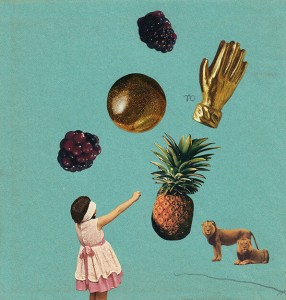 3/22: What’s Your Archetype? (And Why It Matters.)
3/22: What’s Your Archetype? (And Why It Matters.)
by Dr. Carder Stout
It is one of the tenets of being human that we are all inclined to “be” a certain way—and then cling to that identity. But where do those original definitions come from? Carder Stout, a Jungian psychotherapist who practices in Los Angeles, explains their primordial origins—and what we can all do to ensure that they’re serving, rather than hindering us. Continue on Goop.com ›
 2/23: What Your Dreams Are Really Trying to Tell You
2/23: What Your Dreams Are Really Trying to Tell You
“Dreams are a really valuable resource for us to really understand ourselves better, to understand what’s going on in our lives in a different way,” says Dr. Carder Stout, a Los Angeles–based psychologist. Dreams, he explains, can… Continue on Byrdie.com ›
 2/18: Synchronicity and Addiction
2/18: Synchronicity and Addiction
by Dr. Carder Stout
Synchronicity is a term that is frequently used to represent the process of experiences coming together and forming some sort of meaning. Synchronicity was one of psychologist Carl Jung’s most complex and misunderstood concepts, partially because it is an experience that forces people to question their notions of what is rational and scientific. Jung’s concept of a synchronistic world was a complex intertwining of linear causality forming a balance with the unseen energies of the universe. In this conception, a playful relationship exists between what is seen and unseen. Jung hypothesized that synchronistic events were manifestations of a specific desire deriving from the humanistic need to heal and grow. He also believed they were elements of a universal, archetypal pattern. I believe that there is truth to this theory as human beings have a natural tendency to transform physically and psychologically from their first breath to their last. Continue on Huffington Post ›
 1/15: Shadow and Soul
1/15: Shadow and Soul
by Dr. Carder Stout
You are here in this world for a purpose. Even if that purpose isn’t entirely clear to you, it’s very likely that you have goals and dreams that you’re reaching for—a list of things you want to experience, to achieve, to offer and to share. But perhaps you, at times, find yourself making choices and engaging in behavior patterns that leave you disempowered and doubting yourself rather than ready to set the world on fire. I don’t know anyone who hasn’t felt this way. As human beings, we are a delicate balance of strengths and weaknesses, of light and dark aspects. However, one of the biggest impediments to the growth and achievement we want, individually and collectively, is seeing these polarities as the enemies of each other.
What if you knew that the way to access the very best in yourself—the light side of your humanity—was by facing your darkness? What if you knew that your greatest power could be found in the hands of the parts of yourself that you believed to be the most shameful, or powerless? Continue on Alanis.com ›
10/26: Serendipity & Synchronicity
Nothing happens by accident when your soul gets involved. It is the most intentional presence in your life whether you recognize its existence or not. Your soul is omniscient and ever present. It informs your decision making through the thoughts and images it provides. It is the essence that fuels your intuition. When you are certain of something it is your soul’s voice that resounds from the depths of psyche. When a mysterious… Continue on Goop.com ›
 10/9: UnREAL’s Ashley Scott Turns to Dream Analysis After Welcoming Second Child: “I Feel So Free”
10/9: UnREAL’s Ashley Scott Turns to Dream Analysis After Welcoming Second Child: “I Feel So Free”
UnREAL or unearthly? Actress Ashley Scott, who recently portrayed mentally disturbed mom Mary Newhouse on Lifetime’s UnREAL, welcomed her second child in real life less than two months ago.
To help with the stresses of her newly expanded family and her career, she turned to dream psychology with Dr. Carder Stout, who analyzes dreams and helps the dreamer to interpret the deeper implications. Continue on US Weekly ›
 8/21: ‘We are all addicts’: Gwyneth Paltrow calls on therapist to explain unhealthy obsessions with everything from phones to exercise in latest Goop
8/21: ‘We are all addicts’: Gwyneth Paltrow calls on therapist to explain unhealthy obsessions with everything from phones to exercise in latest Goop
She uses her weekly Goop to impart her words of wisdom and has recently covered everything from water having feelings to yoga for children.
This week, Gwyneth Paltrow called on one of her favourite therapists to discuss why he thinks we are all addicts.
Describing the post, which is titled Why We Are All Addicts, 42-year-old Gwyneth writes: ‘Dr. Carder Stout, a therapist in Los Angeles, explains how we’re all essentially addicts, manifesting this shared reality through everything from our relationships with our tech to an obsession with exercise.’ Continue on DailyMail.com ›
 8/21: Goop Tackles Addiction
8/21: Goop Tackles Addiction
Why are we all addicts? That’s the question Gwyneth Paltrow asks in a new post on GOOP. “Dr. Carder Stout, a therapist in Los Angeles, explains how we’re all essentially addicts, manifesting this shared reality through everything from our relationships with our tech to an obsession with exercise,” she writes. “Yes, addiction is inside you no matter how far your soul has evolved. It resides in your psyche and binds you together with all other addicted beings in the world. We could not shake it if we tried.” Continue on MSN.com ›
 8/20: Everyone is an Addict
8/20: Everyone is an Addict
by Dr. Carder Stout
 While these are the people society has characterized as true addicts, we often overlook a simple fact—that we may be addicts ourselves. Much like other psychological issues, addiction manifests in varying degrees of severity. Some individuals may be overcome by its powerful current while others may experience it more subtly, like a plodding drip. You may be unaware of your addictive tendencies or simply brush them off as non-threatening character flaws. Continue on Goop.com ›
While these are the people society has characterized as true addicts, we often overlook a simple fact—that we may be addicts ourselves. Much like other psychological issues, addiction manifests in varying degrees of severity. Some individuals may be overcome by its powerful current while others may experience it more subtly, like a plodding drip. You may be unaware of your addictive tendencies or simply brush them off as non-threatening character flaws. Continue on Goop.com ›
 8/5: This Is What Your Dreams Really Mean
8/5: This Is What Your Dreams Really Mean
HuffPost Lifestyle spoke with Dr. Carder Stout, a Los Angeles-based Jungian psychotherapist to evaluate 10 common dream scenarios.
“Dreams are a window into that unconscious part of our psyche,” Stout told The Huffington Post. “You can extract a wealth of important information that is going to help you be a happier, healthier and more evolved person.” Continue on Huffington Post ›
 6/11: What Dreams Mean
6/11: What Dreams Mean
by Dr. Carder Stout
 Did you ever have a dream as a kid that sent you scurrying to your parent’s room? You were convinced that the dream was real, but your parents reassured you it was not. They may have said, “Don’t worry. It was only a dream. It wasn’t real.”
Did you ever have a dream as a kid that sent you scurrying to your parent’s room? You were convinced that the dream was real, but your parents reassured you it was not. They may have said, “Don’t worry. It was only a dream. It wasn’t real.”
As you curled up between them and fell back asleep there was a whisper of safety tucked in next to you. The two people you trusted most had delivered a message that was designed to lull you back to sleep. And it did… Continue on Goop.com ›
Media Relations
Courtney Link at Smith Publicity
Courtney.Link@smithpublicity.com










